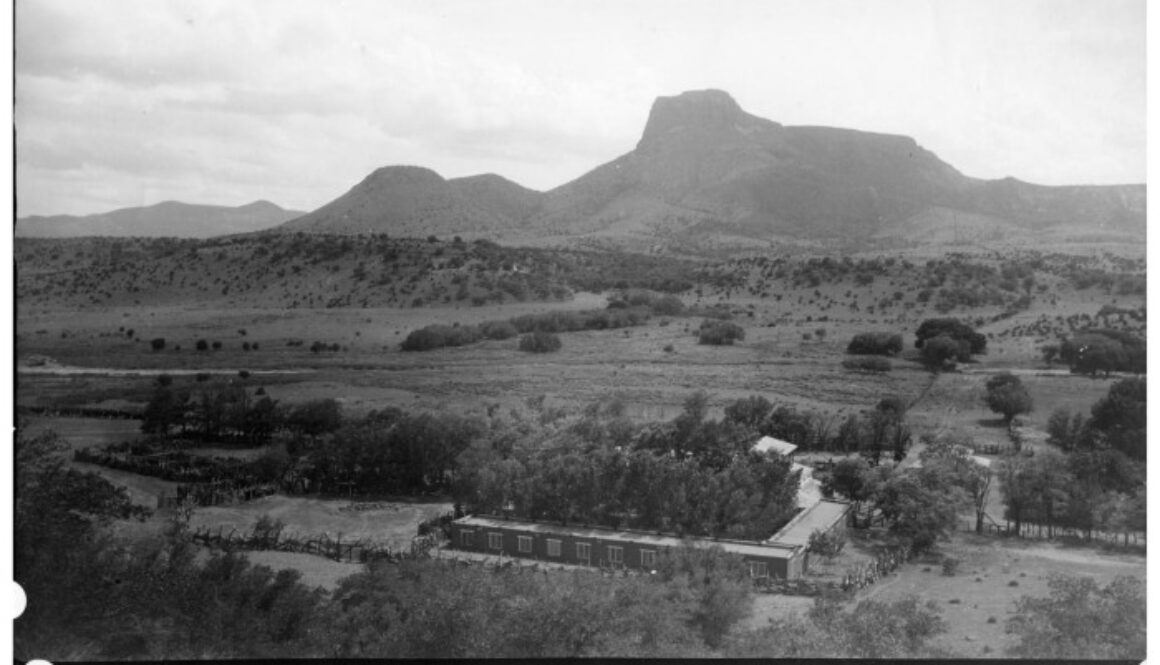West Texas Ranching in South Carolina
West Texas Ranching in South Carolina We've been ranching for generations, and here's what I've learned...
Last week, my wife Hallie and I spent some time at our family ranch in Loving County, (West) Texas after not having been there since we got married in 2020. Being there rekindled an appreciation for what my ancestors had endured, when they first settled the area in the early 1900’s. My great, great, great grandfather, John Alva Haley and his wife, Julia Evetts Haley mobilized to Midland, Texas in 1906, the early days of settlement out there. Though they struggled financially, John Alva Haley opened up a hotel, a hardware store, and was the 2nd Mayor of the now, bustling city. They moved around, buying and selling different ranches and businesses throughout the next several years, but then finally settled back in Midland, buying 11 sections in Loving County in 1915. That was the start of a long lineage of Haley family ranching and cowboying. And now, though much has changed due to the oil field, some things are largely the same after 100+ years. Rain reports and friendly faces are still welcomed, drouth and outsiders are still unwelcome. During the trip, we attended the Foy Proctor Awards event in Midland, TX at the Haley Memorial Library. We listened to Old Timers tell some compelling (and occasionally embellished) stories about their experiences growing up cowboying and ranching in the west, as well as their experiences working under icons of greater caliber. The idea of the event is to promote the continuation of West Texas and the Plains way of life, telling old stories and best of all eating brisket from “bonafide” cooks that work off of an original chuck wagon. It’s really the epitome of the words, “West Texas” and unfortunately, it is the cultural vein being lost from our current day and age.
Now I am more sentimental than most regarding these things, but the tricky part for me has been, how do I incorporate these traditions into my South Carolina world? Everything is different here on the east coast. People look at you puzzled if you use the word “drouth” in lieu of “drought”. Instead of caliche and sand, we deal with clay and loam. What I think are ranches, are called farms out here. The grass is green and the pastures have trees. Folks wear ball caps instead of cowboy hats. Despite all these differences, I am determined that this part of the world could use to benefit from a bit of my West Texas culture. Since we’ve been here, we can already see folks are intrigued by how we do things differently. For example, when we first installed cattle guards, several neighbors stopped by to ask us what in the world we were putting in. Every time we visit with another farmer, we try to offer help with things they might need, demonstrating the art of “neighboring”. Recently, we’ve started hosting outdoor events at the HQ house, which reminds me of the days that we attended “porch parties” put on by my late Aunt Mary out at the Ranch in Texas.
Even though I feel drawn to continue doing everything just like how things “used to be”, tomorrow morning we will fire up the gator, instead of saddle up the horses. And in the spring, we won’t brand calves because it’s not necessary here in South Carolina. But for these changes I am grateful, because it’s allowed me to learn what it takes to raise fine cattle in my part of the world. And really, beyond the veil of sentimentalism and traditions are the core lessons imparted by my ancestors of individualism, ruggedness, and adaptability in the face of adversity. To carry on those qualities in our cattle raising and my own personal life, I believe, is to honor that heritage. I am excited to see what the future will bring with this blend of old ways and new!


